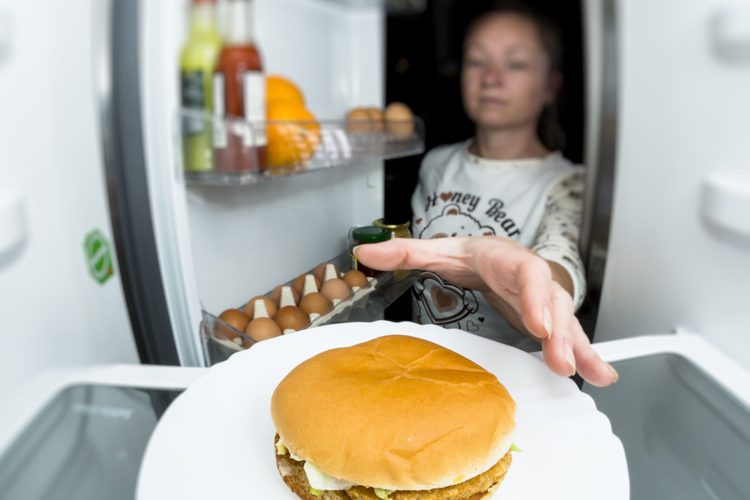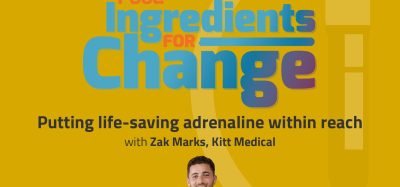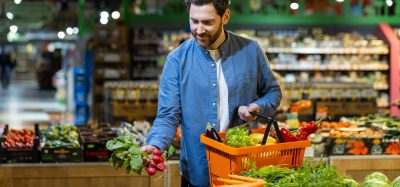What is food addiction?
- Like
- Digg
- Del
- Tumblr
- VKontakte
- Buffer
- Love This
- Odnoklassniki
- Meneame
- Blogger
- Amazon
- Yahoo Mail
- Gmail
- AOL
- Newsvine
- HackerNews
- Evernote
- MySpace
- Mail.ru
- Viadeo
- Line
- Comments
- Yummly
- SMS
- Viber
- Telegram
- Subscribe
- Skype
- Facebook Messenger
- Kakao
- LiveJournal
- Yammer
- Edgar
- Fintel
- Mix
- Instapaper
- Copy Link
Posted: 28 November 2019 | Kevin Sullivan | No comments yet
A study has revealed that 29 percent of people categorised as obese or overweight would consider themselves food addicts. Kevin Sullivan, a sobriety coach and motivational speaker, explores how consumers and industry alike struggle to find a solution.


Society has perceived thinness as the conventional standard for a desirable, attractive and good body. For some people this standard is unachievable, creating a baseline for an unhealthy relationship with food. Almost 40 percent of Americans are obese, and another 32 percent are overweight – and while not every person who can be considered overweight is addicted to food, these figures are staggering when juxtaposed with the rest of the world.
Food is often marketed as something that will make us happy, something that will make us feel whole. Food is not just seen as fuel to sustain life, it is seen as a comfort. It is not surprising that so many people develop unhealthy eating habits when our society has created a harmful standard of fitness while simultaneously presenting unhealthy food as an escape.
The problem of food addiction
Food addiction is a tricky concept to quantify and measure. As humans, we require food to stay alive, so determining what an unhealthy relationship with food looks like can be difficult. Obviously, people who have bulimia or binge eat have a form of food addiction, but what about people who go to food for comfort, and find themselves unable to control their actions around certain foods?
As humans, we require food to stay alive, so determining what an unhealthy relationship with food looks like can be difficult
We often associate obesity with food addiction, and while in some cases there is overlap between the two, not every person who is obese can be considered addicted to food. Genetics plays a large role in the composition of a person’s body and does not necessarily determine a person’s eating habits. At the same time, it is important to examine our society’s unhealthy relationship with food. What we put in our food, where we get our food, education, and socioeconomic factors can determine how addictive a food substance can be, and who has access to healthy foods.
Resolving the issues
Food addiction is not only tricky to diagnose, it is difficult to treat. We require food to live, so a person with food addiction needs to practice abstaining from either a particular type of food (usually processed foods or foods high in sugar/fat) or eating in vast quantities.
Food addiction is not only tricky to diagnose, it is difficult to treat
Like with every form of addiction, addicts turn to their vices when they are trying to hide from an underlying issue that is harming their spirit. Seeking help and finding these underlying wounds is crucial to being able to break a dependency on a substance. There are specific support groups that help tackle food addiction specifically, such as Overeaters Anonymous or Food Addicts Anonymous.
Who is responsible?
No one ever wants to take responsibility for causing harm to people. While food corporations, our education system and our healthcare system are all at part responsible for developing our relationships with food, expecting them to act is a waste of energy unless they are coerced to act. The onus falls on the people and their elected officials to speak up about the food industry and what it is doing to people across the country.
The future of food addiction will hopefully include a wider acceptance of food addiction as a serious issue, and a deeper understanding of what constitutes food addiction and the types of food that are addictive is essential to finding a solution.
About the author
Kevin Sullivan is a sobriety coach, motivational speaker and serial entrepreneurial who is committed to helping others struggling with addiction. Kevin has helped start successful multi-million-dollar businesses in several different verticals including Job.com, Eniware, and Viggle. Kevin was also said to be the driving force behind launching pizza franchises Domino’s and Papa John’s in the world’s pizza capital, NYC.
Kevin is currently working to change the narrative around addiction and recovery to an inclusive message centred around community, self-care and inner strength.









